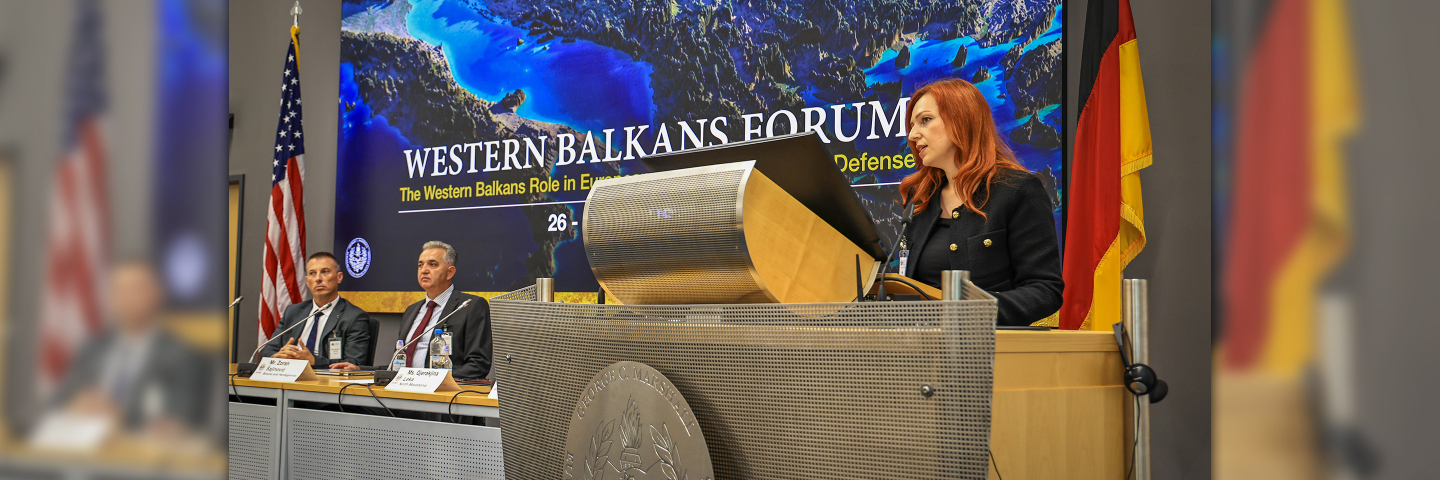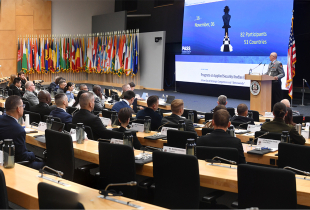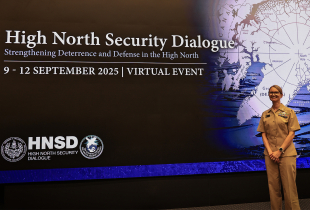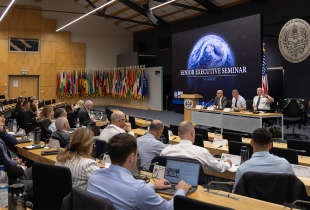
Western Balkans Forum Concludes with Call for Stronger Regional Cooperation
The Western Balkans Forum closed Aug. 28, 2025, at the Marshall Center after three days of discussion on the region’s role in European-led deterrence and defense.
The event brought together defense officials, academics, and policy experts from across Southeast Europe to examine security challenges, exchange perspectives, and strengthen cooperation.
Throughout the forum, participants stressed that while Western Balkan nations have made progress toward NATO and European Union membership, the region remains vulnerable to organized crime, corruption, political instability, and malign foreign influence. Speakers emphasized that NATO and the EU provide the strongest frameworks for long-term stability, but that local governments must assume greater responsibility for modernization, defense capacity, and resilience.
Senior officials from Albania, Montenegro, and North Macedonia outlined their national defense reforms and NATO contributions, while experts examined hybrid threats, disinformation, and the impact of external powers such as Russia and China. Discussions also focused on energy security and economic resilience, highlighting the importance of diversifying supply and reducing dependency on Russian influence.
“The result of our work here is a deeper shared understanding and a stronger recognition that the Western Balkans are not a problem to be managed, but a contributor to European security,” said Tim McAteer, deputy director of the Marshall Center. “This forum reinforced the value of dialogue, trust, and cooperation at every level.”
Participants also praised the Marshall Center’s role in convening regional voices for candid exchanges.
“Without the Marshall Center, regional voices would have fewer opportunities to share perspectives on these issues,” said Endrit Reka of the Albania Policy Center. “This forum creates space for dialogue that helps us better understand each other’s challenges and identify practical ways to strengthen cooperation.”
The three-day program underscored that stability in the Western Balkans is essential for European-led deterrence and defense, with speakers urging continued integration, investment in resilience, and closer collaboration across the region.


